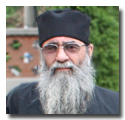Copy Editor's Messsage - Dr. Pasquale DiLeo

GLOSSA has a great advantage over traditionally published/printed academic journals in that it has a worldwide readership that encourages and approximates the ideal of intellectual discourse. There are few restrictions, i.e., quality manuscripts from across disciplines are routinely published. Consequently, many prominent scientists/researchers and readers from around the world are duly informed by screening and selectively downloading the articles that are freely accessible on the GLOSSA website.
The demand to ‘publish or perish’ has become increasingly intensive among academics/professors of tertiary educational systems, and has induced many academics/professors to submit manuscripts as a matter of course and form in order to preserve their employment or acquire/attain advancement/promotion. The principal goal has degenerated and the objective is now to be accredited/certified for publishing by the employer-institution. However, the quality, content, and relevancy of the research are routinely no longer of any importance. Additionally, manuscripts often present grave difficulties in the following areas: (a) academic tone and vocabulary choice, including informal language and awkward vocabulary usage; (b) general writing, including organization, level-headings, paragraphs, and transitions; (c) grammar and syntax, including verb tenses, subject-predicate agreement, sentence structure, and run-on sentences; (d) punctuation and mechanics, including periods, commas, quotation marks, capitalization, and number styles; (e) reference-list entries and in-text citations; and (f) APA formatting. A considerable number of these ‘burnt’ manuscripts, i.e., manuscripts (a) that are not suitable for publication, and/or (b) that may have been rejected by other academic journals, are regularly submitted.
The publication of such articles would ultimately result in the vulgarization of GLOSSA and its ruin/degradation as a respected academic journal. Moreover, such action would also reflect adversely on the University of Turabo and the School of Social and Human Sciences, which GLOSSA represents. The Editorial Board of GLOSSA responds to this alarming situation by continuing to demand excellence in terms of content and formulation/expression, and by considering for publication innovative manuscripts that transcend standardized ‘journal’ orthodoxy.
However, in all fairness, it should also be noted that the very demand to ‘publish or perish’ has become a ‘tournament’ in which only a few can win, and potential ‘losers’ are de-motivated or frustrated, and resort to obstruction. Without discounting/excusing mediocrity and lack of achievement motive, the question still arises as to whether the expectation to ‘publish or perish’ is completely justified/justifiable. After all, academic activities transcend publishing, and it is not self-evident that the best publishing academics/professors are also necessarily those who are ready, willing, and able to teach students effectively or to be active in the university administration.
As Copy Editor of GLOSSA, I am fully aware that existing trends will not readily change but hope to be able to signal to the academic community, especially that of the University of Turabo, that it is possible to pursue a compromise strategy. This involves acknowledging the Editorial Board’s duty/right to openly pursue GLOSSA’s official policy regarding innovative and relevant research/investigation and other articles of academic excellence while ensuring that GLOSSA: (a) continues as an ambilingual academic linguistics journal open to contributions from other disciplines; (b) remains internationally orientated; (c) encourages/promotes contributions that address real-life issues - based on rigorous analysis and empirical research; (d) welcomes a wide range of transdisciplinary essays, reviews, commentaries, treatises and special-interest articles; and (e) publishes quality innovative papers that transcend standardized journal custom/convention.
Sincerely,
Dr. Pasquale DiLeo,
Copy Editor
Articles
- October 2011
- March 2011
- October 2010
- March 2010
- October 2009
- December 2008
- June 2008
- December 2007
- June 2007
- December 2006
- June 2006